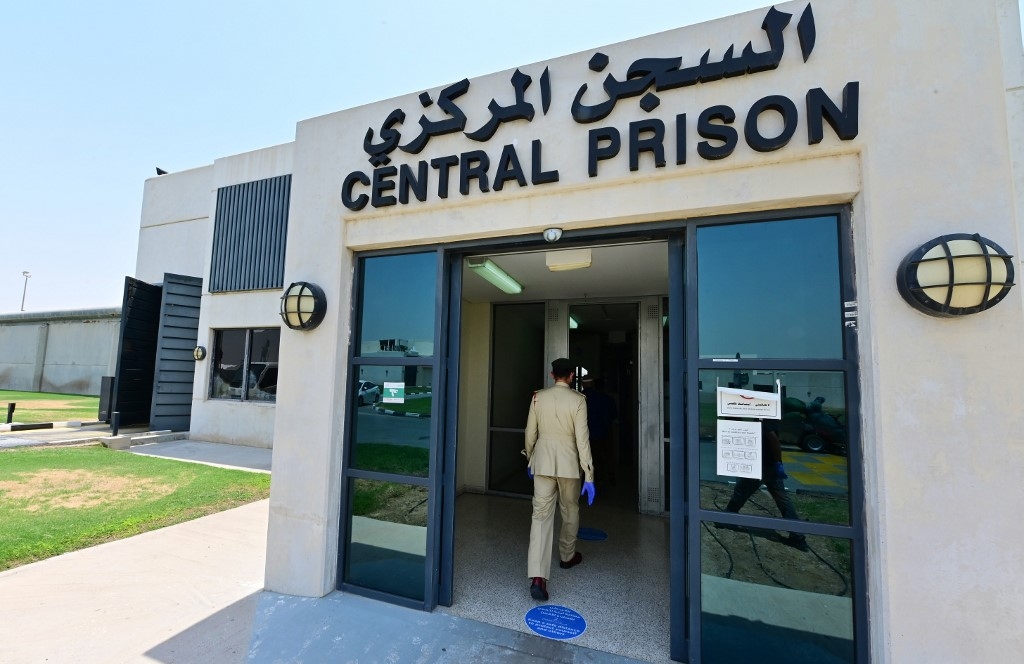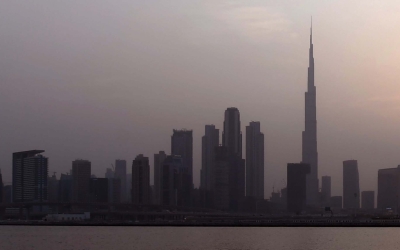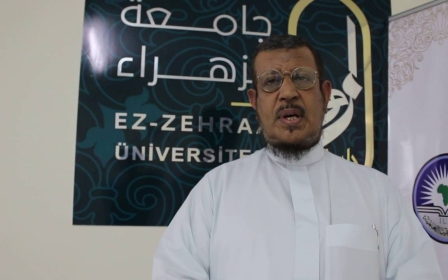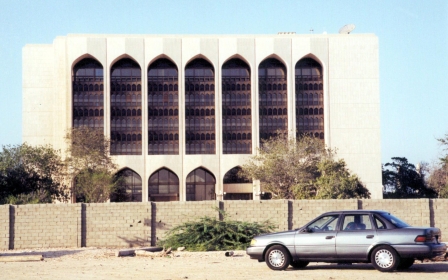US congressman calls for 'UAE 94' prisoner's release

A US congressman has called for the release of Abdulsalam Mohamed Darwish al-Marzooqi, an Emirati prisoner of conscience, who was arrested and imprisoned during the country's infamous "UAE 94" trial.
Jim McGovern, who represents the second district of Massachusetts and is co-chair of the Tom Lantos Human Rights Commission, said Marzooqi's human rights "have been violated repeatedly since his warrantless arrest in 2012".
"Mr al-Marzooqi's case seems to be an example of the UAE's mistreatment of individuals who oppose the government, feeding doubts about the country's commitment to the rule of law," McGovern said in an emailed statement to MEE.
"Given the increased risk to detainees the world over due to the coronavirus, the UAE should consider releasing al-Marzooqi immediately."
'Given the increased risk to detainees the world over due to the coronavirus, the UAE should consider releasing al-Marzooqi immediately'
- Jim McGovern, US congressman
Marzooqi was arrested in 2012 as part of a controversial trial in which 94 political activists were accused of planning to overthrow the Emirati government.
The 2013 trial, which became known as "UAE 94", resulted in the conviction of 69 people - eight in absentia - who received sentences as long as 15 years.
Two years earlier, the 94 individuals had reportedly signed a petition calling on the Emirati government to institute a set of democratic reforms.
The signatories were said to have called for an elected Federal National Council with full regulatory powers and universal suffrage, a retreat of the security state and basic human rights within the existing framework of a constitutional monarchy.
Marzooqi, who previously served as head of the family counselling section of Dubai Courts, was handed a 10-year prison sentence for his participation, and has been held in the al-Razeen prison in Abu Dhabi since March 2013.
The International Campaign for Freedom in the UAE warned in April that with the emergence of the coronavirus pandemic, the prisoners languishing at the Razeen prison - known for its dire conditions and nicknamed the "Guantanamo of the UAE" - were unnecessarily being placed in harm's way.
Rights abuses while imprisoned
While in prison, Marzooqi has reportedly been subject to numerous abuses, including solitary confinement, revocation of medicine, beatings and sleep deprivation, according to the Emirati Centre for Human Rights.
He and other prisoners are also reportedly denied access to religious expression, including the ability to perform Friday congressional prayers or having access to the Quran.
In August 2013, Marzooqi participated in a hunger strike to protest the conditions in which he was being held.
Marzooqi's wife, Awatif al-Rayeis, said her husband was deprived of physical therapy treatment for spinal disc problems as well as facial nerve paralysis.
After her husband's imprisonment, Rayeis and five of her children were sent to the United States in July 2016, in order to seek treatment for three of the children who suffer from Dravet Syndrome, a rare condition that leads to prolonged seizures, language and speech issues, and disruption of the nervous system.
Their other daughter stayed in the UAE to complete her studies, and, until three years ago when prison authorities confiscated her identity card, had been the only person visiting Marzooqi.
"Since this incident almost three years ago, my daughter did not visit or see her father out of fear that she would be harmed by the intelligence service," Rayeis said.
Like others in the UAE 94 case, Marzooqi's family members were cut off from the UAE, which in Rayeis' case was the only source of income for the family.
In December 2016, she was notified that the Emirati government would stop sending payments for her children's medical bills.
"I received a call from the UAE consulate in Boston [saying] that the government treatment grant for my children was stopped, and that the last day we would receive aid was on 31 December, while my children [were] still receiving treatment at Boston Children's Hospital," she told MEE.
Five months later, she was notified that UAE authorities had revoked her family's nationality, leaving her ultimately stateless and penniless.
Rayeis' call has been echoed by others in the US and abroad, including rights groups including Human Rights Watch and Amnesty International.
"We are calling on the UAE government to end its continuing use of harassment, arbitrary detention, enforced disappearance, torture and other ill-treatment, and unfair trials against activists, human rights defenders and those critical of the authorities," Amnesty said in a previous statement.
Middle East Eye propose une couverture et une analyse indépendantes et incomparables du Moyen-Orient, de l’Afrique du Nord et d’autres régions du monde. Pour en savoir plus sur la reprise de ce contenu et les frais qui s’appliquent, veuillez remplir ce formulaire [en anglais]. Pour en savoir plus sur MEE, cliquez ici [en anglais].





